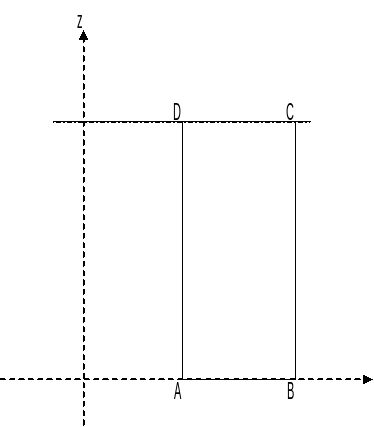20. R modeling#
20.1. Characteristics of modeling#
\(\mathrm{3D},H=1\)

20.2. Characteristics of the mesh#
Number of knots: 20
Number of meshes and types: 1 HEXA20
20.3. Tested sizes and results#
Identification |
Reference type |
Reference value |
Tolerance |
\({\varepsilon }_{\mathrm{xx}}(t=\mathrm{66,666}s)\) |
“ANALYTIQUE” |
8.6666 10-4 |
|
\({\varepsilon }_{\mathrm{xx}}(t=\mathrm{80s})\) |
“ANALYTIQUE” |
1.1 10-3 |
|
\({\varepsilon }_{\mathrm{xx}}(t=\mathrm{90s})\) |
“ANALYTIQUE” |
1.275 10-3 |
|
\(p(t=\mathrm{66,666}s)\) |
“ANALYTIQUE” |
0 |
|
\(p(t=\mathrm{80s})\) |
“ANALYTIQUE” |
3 10-4 |
|
\(p(t=\mathrm{90s})\) |
“ANALYTIQUE” |
5.25 10-4 |
|
\({\sigma }_{\mathit{yy}}(t=\mathrm{66,666}s)\) |
“ANALYTIQUE” |
-133.333 \(\mathit{MPa}\) |
|
\({\sigma }_{\mathit{yy}}(t=\mathrm{80s})\) |
“ANALYTIQUE” |
-100 \(\mathit{MPa}\) |
|
\({\sigma }_{\mathit{yy}}(t=\mathrm{90s})\) |
“ANALYTIQUE” |
-75 \(\mathit{MPa}\) |
|
20.4. note#
The same results are obtained with the 3D_ INCO_UPG formulation as with the conventional 3D formulation.